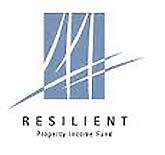
Top stories





EntrepreneurshipHow SMEs can build AI-ready businesses starting with the right technology foundation
Sudesh Pillay, WhyMAcForSME 23 minutes

More news























Logistics & Transport
Uganda plans new rail link to Tanzania for mineral export boost


The Resilient family firms, which hold stakes in each other, include Resilient Property Income Fund, Capital Property Fund, Fortress Income Fund, New Europe Property Investments (Nepi) and Rockcastle Global Real Estate Company.
"Generally speaking, their growth as a group has been head and shoulders above other similar-sized groups," Mkhize said last week, adding that the companies' growth forecasts pointed to a continuation of this trend.
Resilient focuses mainly on non-metropolitan retail properties in SA and Nigeria, while Capital has a bias towards local logistics, Fortress focuses on rural retail near commuter transport nodes, Nepi operates mainly in Romania, and Rockcastle targets global property.
Mkhize said the "engine" for the Resilient group of funds was the three retail-focused stocks - Resilient, Nepi and Fortress - which were each dominant in their respective markets.
Nepi, which had proved a good investment for the Resilient partly due to currency factors, had a strong pipeline of developments that were yield-enhancing and financed by competitive debt.
"Nepi is dominant in Romania, Resilient is dominant in the non-metropolitan areas, and Fortress is dominant along transport nodes." He said Capital, which had investments in Nepi and Fortress, could "piggyback on their sister funds".
The group's management teams had "also been cautious to not just do any developments for the sake of doing developments but to focus on those where they believe they can dominate their and not be vulnerable to competition".
Resilient's chief executive Des de Beer attributed the fund's strong growth to forward planning, conservative interest rate hedging, and the "dominance" of its centres.
"A lot of these strategies we put in place five years ago - we knew the South African market was a bit over-heated, and we saw deep value in places like Romania, so we invested there at the time. Our investments in Nepi were yield-dilutionary for us - now we are getting the benefits," he said.
Resilient was not targeting further retail developments in SA, which the fund sees as a saturated market but De Beer said the fund's focus was on major extension projects and on Nigeria.
Resilient, with partners Standard Bank and Shoprite, is developing retail assets in predominantly non-metropolitan areas in Nigeria where there is little competition. The fund recently began the construction of a mall in Warri.
De Beer said Nigeria was still "untouched" although places such as Lagos were being increasingly targeted. "There is less than 120,000m² of formal retail space in Nigeria, including Lagos and that's less retail space than in Sandton City," he said.
Source: Business Day via I-Net Bridge

For more than two decades, I-Net Bridge has been one of South Africa’s preferred electronic providers of innovative solutions, data of the highest calibre, reliable platforms and excellent supporting systems. Our products include workstations, web applications and data feeds packaged with in-depth news and powerful analytical tools empowering clients to make meaningful decisions.
We pride ourselves on our wide variety of in-house skills, encompassing multiple platforms and applications. These skills enable us to not only function as a first class facility, but also design, implement and support all our client needs at a level that confirms I-Net Bridge a leader in its field.
Go to: http://www.inet.co.za